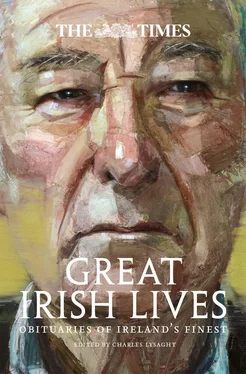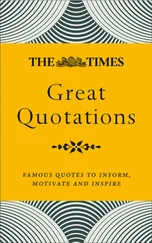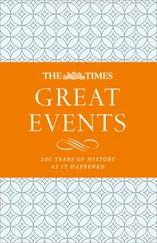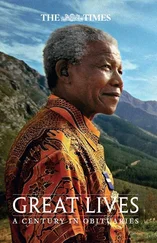There were those who thought otherwise. Some members of the Society of Friends and a few other individuals at Cork had bound themselves into an association for the suppression of drunkenness, but were unable to make head against the torrent. In their despair these gentlemen, though Protestants, applied to Father Mathew. Father Mathew responded to the call; with what success ultimately we suppose that our readers are all well aware. The work, however, was not the work of a day. For a year and a half he toiled and laboured against the deep-rooted degradation of the “Boys” of Cork, the ridicule and detraction of many doubtful friends, and the discountenance of many others from whom he had expected support. At length he had the satisfaction of seeing the mighty mass of obdurate indifference begin to move; some of the most obdurate drunkards in Cork enrolled their names in his “Total Abstinence Association.” His fame began to travel along the banks of the Shannon. First, the men of Kilrush came in to be received, then some hundreds from Kerry and Limerick; until, early in the month of August, 1839, the movement burst out into one universal flame. The first great outbreak was at Limerick, where Father Mathew had engaged to preach at the request of the bishop; and the mayor of which city declared that within 10 months no less than 150 inquests had been held in the county, one half of which were on persons whose deaths had been occasioned by intoxication. As soon as the country people heard that Father Mathew was in Limerick they rushed into the city in thousands. So great was the crush, that though no violence was used the iron railings which surrounded the residence of “the Apostle of Temperance” were torn down, and some scores of people precipitated into the Shannon … We have not the time or the space to follow Father Mathew in his Temperance progresses. Some idea of their results may be formed when we state that at Nenagh 20,000 persons are said to have taken the pledge in one day; 100,000 at Galway in two days; in Loughrea, 80,000 in two days; between that and Portumna from 180,000 to 200,000; and in Dublin about 70,000 during five days. There are few towns in Ireland which Father Mathew did not visit with like success. In 1844 he visited Liverpool, Manchester, and London; and the enthusiasm with which he was received there and in other English cities testified equally to the need and to the progress of the remedy.
It only remains to add, that in Father Mathew the ecclesiastic was completely absorbed in the Christian, the man of goodwill towards all his fellow men. To him the Protestant and the Catholic were of equal interest and of equal value. Again, no man ever displayed a more disinterested zeal. He spent upon the poor all that he had of his own and reduced to bankruptcy his brother, a distiller in the South of Ireland, whose death followed shortly upon the losses resulting from the “Temperance” crusade. Yet this man, and other branches of the family, though extensively connected with the wine and spirit trade, not only bore their losses without a murmur, but even supplied Father Mathew with large sums of money for the prosecution of his work. A few years since, Her Majesty was pleased to settle upon Father Mathew an annuity of 300 l . in recognition of the services which he had rendered to the cause of morality and order; but even this we understand was almost entirely absorbed in heavy payments on policies of insurance upon his life, which he was bound to keep up to secure his creditors.
WILLIAM DARGAN
8 FEBRUARY 1867
WILLIAM DARGAN, of whose death we have just been informed by telegraph, was the son of a farmer in the county of Carlow. Having received a fair English education, he was placed in a surveyor’s office. He obtained the appointment of surveyor for his native county, but soon after resigned, from a feeling that he could never in that position be able to advance himself as he thought he should do if he were free to do the best he could with his talents. The first important employment he obtained was under Mr Telford, in constructing the Holyhead road. He there learnt the art of road-making, then applied for the first time by his chief, the secret of which was raising the road in the middle that it might have something of the strength of the arch, and making provision for the effectual draining off of the surface water. When that work was finished Mr Dargan returned to Ireland and obtained several small contracts on his own account, the most important of which was the road from Dublin to Howth, which was then the principal harbour connected with Dublin. Soon after this he embarked in a career of enterprise which, owing to the state of the country at that time, and the nature of the works which he achieved, will cause him to stand alone as a leader of industrial progress in the history of Ireland. There was then on every hand a cry for “encouragement” and protection. In the name of patriotism people were invited to purchase certain articles, not because they were good, but because they were of Irish manufacture. To be personally engaged in business of any kind was considered vulgar. It was a thing to which no “born gentleman” would stoop, because if he did he would be put in Coventry by his class. The most wealthy manufacturer, no matter how well educated or gentlemanly, if he attended at his counting-house, or looked regularly after his business, would have been blackballed at any second or third rate club in Dublin. A gentleman might, indeed, amuse himself at some sort of work for the benefit of his health; but if it were for the benefit of his purse, and for so sordid a consideration as profit, he immediately lost caste. Trade might be a good thing in its way, but it should be left to men who were not born with gentle blood. Protestants of the middle classes, who had no pretensions to such blood, had imbibed from their “betters” much of the same contempt for industry and the same respect for idleness; while the Roman Catholics had not yet sufficiently recovered from the effects of the Penal Code to enter with self-reliance and persistent energy into any sort of industrial enterprise. It was under such circumstances that Mr Dargan applied himself to study the wants of his country, which, so far as the working classes were concerned, had derived so little benefit from political agitation. Such a man would naturally embrace any opportunity that opened for extending the benefits of the railway system to Ireland. Kingstown had superseded Howth as the Dublin harbour. It was increasing fast in population, and the traffic between it and the metropolis was immense. It was carried on chiefly on outside cars rattling away through stifling dust in summer and splashing mud in winter. Mr Dargan was then a young man comparatively unknown, except to a circle of appreciating friends. He inspired them with his own confidence; a company was formed, and he became the contractor of the first railway in Ireland – the Dublin and Kingstown line – a most prosperous undertaking, which has always paid better than any other line in the country. For several years it stood alone. People were afraid to venture much in railway speculation. Canal conveyance was still in the ascendant; a company was formed for opening up the line of communication between Lough Erne and Belfast and Mr Dargan became the contractor of the Ulster Canal, which was regarded as a signal triumph of engineering and constructive ability. Other great works followed in rapid succession; first the Dublin and Drogheda Railway, then the Great Southern and Western, and the Midland Great Western lines. At the time of the Irish Exhibition in 1853 Mr Dargan had constructed over 200 miles of railway, and he had then contracts for 200 miles more. All his lines have been admired for the excellence of the materials and workmanship.
Considering how completely untrained Irish workmen were at that time, and what perversity had been shown by some of the trades, it is a remarkable – indeed, a wonderful, fact that Mr Dargan in all his vast undertakings never had a formidable strike to contend with, and, though the ablest workmen flocked to him from all parts of the country, his gangs were never demoralized, as they have been under other contractors. Even the navvies looked up to him with gratitude as a public benefactor. He paid the highest wages, and paid punctually as the clock struck. So perfect was the organization he effected, so firmly were all his arrangements carried out, and so justly and kindly did he deal with the people, that he was enabled to fulfil to the letter every one of the numerous engagements with which he had entered. The result was that he was held in the highest respect by the whole nation, his credit was unbounded, and, as he once said at a public meeting, he “realized very fast.” At one time he was the largest railway proprietor in the country, and one of its greatest capitalists. The secret of his success, as he once said himself, consisted in the selection of agents on whose capacity and integrity he could rely, and in whom he took care not to weaken the sense of responsibility by interfering with the details of their business, while his own energies were reserved for comprehensive views and general operations. When his mind was occupied with the arrangements of the Exhibition of 1853 he had in his hands contracts to the aggregate amount of nearly two millions sterling. To his personal character and influence that Exhibition was mainly due, and, although many of the first men in the country, including the highest nobility, co-operated with alacrity, and aided with liberal contributions, he was the man who found the capital. After the Exhibition a public meeting was convened by the Lord Mayor, in compliance with a requisition signed by 40 peers, six Protestant Bishops, 15 Roman Catholic Bishops, 49 members of Parliament, and a host of magistrates and professional gentlemen, amounting to 2,200 names. From this meeting resulted a suitable monument to Mr Dargan – the Irish National Gallery, erected on Leinster Lawn, with a fine bronze statue in front looking out upon Merrionsquare. The Queen graciously honoured Irish industry in the person of its great chief. Her Majesty offered him a title, which he declined. She shook hands with him publicly at the opening of the Exhibition, and with the Prince Consort paid a visit to Mr and Mrs Dargan. Wishing to encourage the growth of flax, Mr Dargan took a tract of land in Clara or Kerry, which he devoted to its culture; but owing to some mismanagement the enterprise entailed a heavy loss. He also became a manufacturer, and set some mills working in the neighbourhood of Dublin. But that business did not prosper. About a year ago he had a fall from his horse by which his system was so badly shaken that his recovery was for some time doubtful. Since that he had another fall, but not so serious. Probably the ill state of his health brought on a confusion in his affairs, which recently resulted in his stopping payment and in an arrangement with his creditors, though his assets, it is confidently said, will pay much more than 20 s . in the pound. His embarrassments, however, seem to have deeply affected his health and spirits, and brought on a disease to which his powerful constitution has succumbed.
Читать дальше












